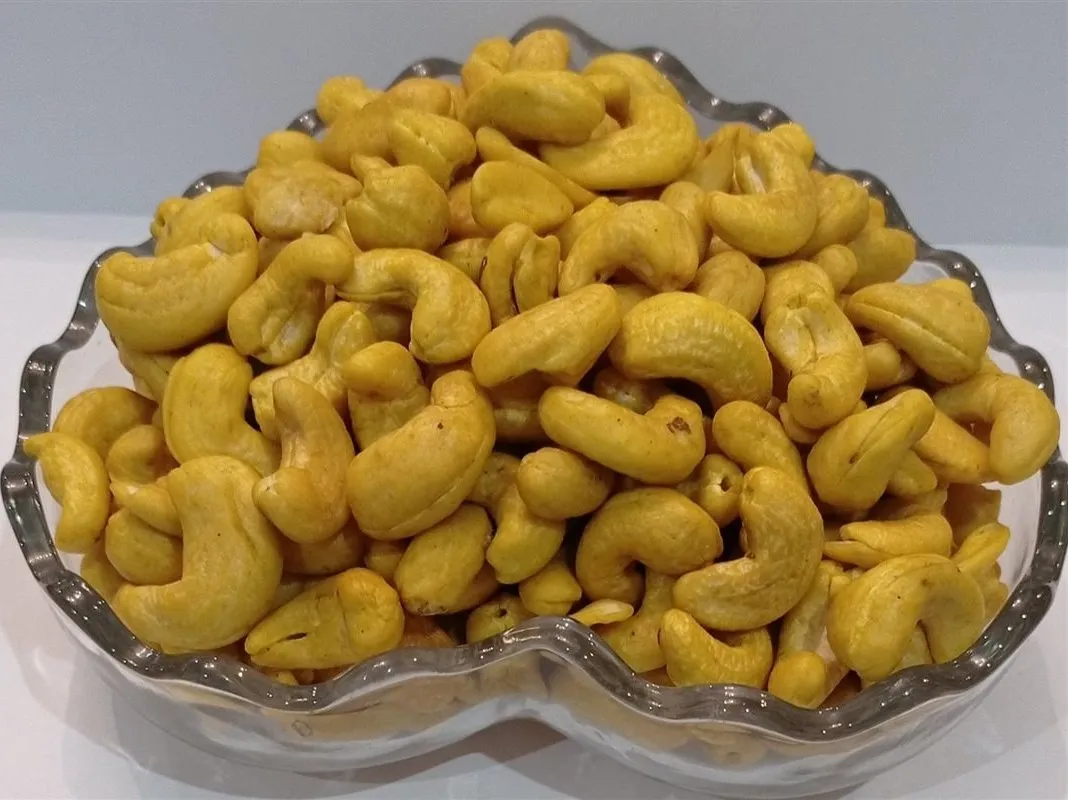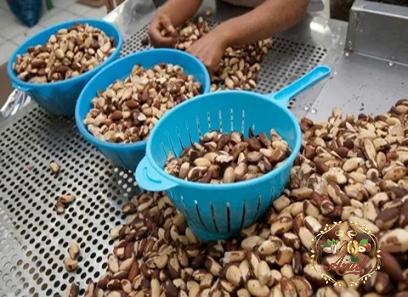The cashew nut industry in Karnataka, India, has witnessed remarkable growth over the years. Karnataka is renowned for producing the highest quality cashew nuts, contributing significantly to the state’s economy. This article explores the key characteristics of the industry, highlighting its advantages and disadvantages.
Discussing the Cashew Nut Industry in Karnataka:
Karnataka is one of the leading states in India when it comes to cashew nut production. With its favorable agro-climatic conditions and a conducive business environment, the state has become a hub for cashew nut cultivation and processing.
The highest quality cashew nuts in Karnataka:
The cashew nuts produced in Karnataka are widely recognized for their superior quality. The state’s favorable climate, fertile soil, and expert cultivation practices contribute to the production of cashews that are larger in size, have a higher kernel percentage, and exhibit excellent taste and texture. The cashew nuts from Karnataka have earned a reputation for their premium quality and are highly sought after in the national and international markets.
Advantages of Cashew Nut Industry in Karnataka:
1. Abundant availability of raw materials:

Karnataka boasts an abundant supply of raw cashew nuts, allowing the industry to meet the growing demand. The state’s favorable climate facilitates the cultivation of cashew trees across various regions, ensuring a steady supply of raw materials for the processing units.
2. Well-established value chain:
The cashew nut industry in Karnataka benefits from a well-established value chain, starting from cultivation to processing and distribution. This enables smooth operations and efficient management across all stages, ensuring the delivery of high-quality cashew nuts to consumers.
3. Employment generation:
The industry has emerged as a significant source of employment in Karnataka, especially in rural areas. Cashew nut cultivation, harvesting, processing, and packaging create numerous job opportunities, helping to improve the livelihoods of local communities.
4. Export potential:
Karnataka’s cashew nut industry has a strong export orientation. The high-quality cashew nuts produced here are exported to various countries, including the United States, United Arab Emirates, European Union, and many more. This generates foreign exchange earnings for the state, positively impacting the overall economy.

Disadvantages of Cashew Nut Industry in Karnataka:
1. Price volatility:
Like any agricultural commodity, cashew nut prices are subject to fluctuations. Market dynamics, global supply and demand, and other factors can significantly impact the prices, making it challenging for stakeholders in the industry to plan their investments and operations effectively.
2. Processing challenges:
Processing cashew nuts is a labor-intensive task that requires skilled workers. The availability of skilled labor can sometimes be limited, posing a challenge to the industry’s growth and productivity. Mechanization of processing units is an area that needs attention for overcoming these challenges.
3. Climate change vulnerability:
The cashew nut industry, like other agricultural sectors, is vulnerable to the adverse effects of climate change. Erratic weather patterns, such as unpredictable rainfall and increasing temperatures, can impact cashew nut yields and affect the overall productivity of the industry.

Conclusion:
The cashew nut industry in Karnataka has emerged as a thriving sector, contributing significantly to the state’s economy and employment generation. The production of high-quality cashew nuts, coupled with a well-established value chain, has given the industry a competitive edge in national and international markets. While the industry enjoys several advantages, including abundant raw material availability and strong export potential, it also faces challenges such as price volatility, processing difficulties, and vulnerability to climate change. Addressing these challenges will be crucial for sustaining and further enhancing the growth of the cashew nut industry in Karnataka.To ensure the continued growth and success of the cashew nut industry in Karnataka, various measures can be taken.
Firstly, efforts should be made to promote mechanization in processing units. By deploying modern technology and machinery, the industry can improve productivity, reduce labor dependency, and streamline the processing operations. This would not only enhance efficiency but also address the issue of skilled labor availability.
Secondly, there should be a focus on research and development to develop climate-resilient cashew varieties. By investing in scientific research, the industry can develop cashew nut cultivars that are more adaptable to changing climatic conditions, ensuring a stable yield and reducing vulnerability to climate change.
Furthermore, the industry can benefit from improved market linkages and branding strategies. By establishing direct connections between farmers, processors, and consumers, the industry can eliminate middlemen, reduce transaction costs, and ensure fair prices for cashew nuts. Effective branding and marketing campaigns can also help create a distinctive identity for Karnataka cashews in global markets, further boosting their demand and value.
In addition, there is a need for capacity-building programs and training initiatives to enhance the skills of farmers, processors, and other stakeholders in the cashew nut industry. Providing technical knowledge, best practices, and access to modern farming techniques can equip the industry with competent workforce and enhance its overall competitiveness.
Lastly, the government and industry associations should collaborate to establish quality control standards and certifications for cashew nuts. This would not only ensure consistent quality but also instill confidence among buyers and consumers, leading to increased demand for Karnataka cashews.

In conclusion, the cashew nut industry in Karnataka has emerged as a prominent sector, known for its high-quality production and potential for growth. The advantages of abundant raw material availability, a well-established value chain, and export potential outweigh the challenges of price volatility, processing difficulties, and climate change vulnerability. By addressing these challenges through mechanization, research and development, improved market linkages, capacity-building initiatives, and quality control measures, the industry can sustain its growth trajectory and further strengthen its position in the domestic and international markets. With continued support and strategic interventions, the cashew nut industry in Karnataka has the potential to reach new heights and contribute even more significantly to the state’s economy.









